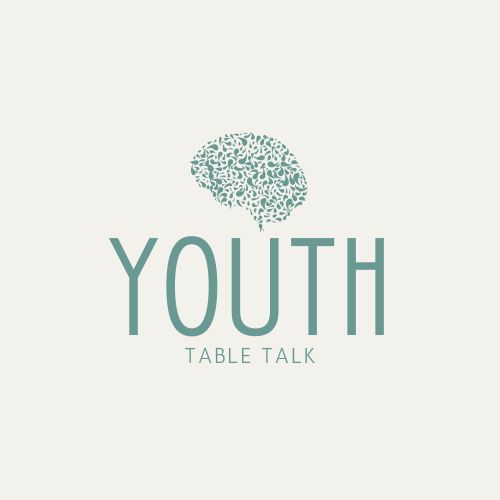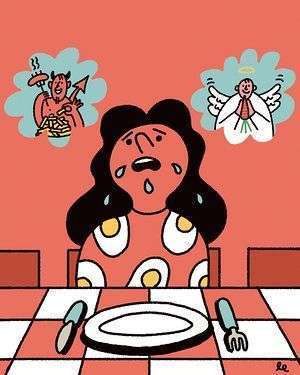Teenage or Adolescence is a stage of life where significant personality changes, personal life, social circle, and cognition occur. Adolescents undergo magnificent corporal changes in their body mass, stature, hair growth, voice thickening, and the emergence of secondary sexual characteristics. However, one thing to note here is that mental changes also take place along with these bodily changes. The psychological changes make young adults prone to develop disorders such as eating disorders, namely,purging disorder.
When I was a teenager, I was very much looks conscious. However, I didn’t engage in purging behaviours, but like most teenage girls, I would take special care of my diet, not to consume even a single extra calorie.
Let me walk you through purging disorder briefly. As many as 30 million individuals in the USA will suffer from one Eating Disorder or the other. The increasing statistics demonstrate that you or someone close to you might encounter purging disorder in future, if not now, so you must have a general idea about this psychological disorder.
People suffering from purging disorder may have an average weight or be overweight. They often feel no control over their eating habits and purging behaviours. As a result of which, they experience feelings of shame, guilt, and anxiety related to their unhealthy eating and dieting habits. I have mostly seen cases where people don’t binge eat but engage in episodes of overeating followed by Purging. Bulimia Nervosa is a Psychological Disorder associated with a purging disorder where people have no control over their food consumption, followed by forceful vomiting, use of laxatives and diuretics, fasting, or a combination of these behaviours.
Today we will discuss unhealthy habits linked with Eating Disorders, including purging disorder, so we can fight and overcome them.
Extreme dieting
Teenagers suffering from Purging Disorder may severely limit their caloric intake, often consuming less than 1000 calories daily. Before developing a personal interest in Psychiatry, I didn’t know the demerits of immense dieting as I was always figure conscious. I wanted to look the best wherever I went and be praised for whatever I wore. This body consciousness drove me crazy to the point where I refrained myself from consuming proper meals. I didn’t realise that my body was running on a nutrient deficit.
It is very unhealthy to starve your body of essential vitamins and minerals. Had my mother not stopped me while I was starving my body and getting so diet conscious, I might have developed purging disorder, as it’s the first step towards this obsessive mental Disorder.
Obsessively counting calories
Obsessively taking notes of every calorie they consume is a very unhealthy habit I have observed in people with purging disorder. It can have a lot of negative impacts on one’s personality. Focusing too heavily on counting calories and restricting certain foods can lead to disordered eating behaviours, such as binge eating or Purging.
If you have a habit of keeping track of calories, you have a high chance of becoming malnutrition and eventually developing an Eating Disorder. Constantly counting calories has another big downside of making an individual antisocial as they may avoid gatherings where food is involved.
Calorie counting can be helpful for some people looking to maintain a healthy weight. However, obsessing over it can be harmful and interfere with your overall well-being.
Restrictive eating patterns
A few years back, while I was an MBBS student, I had a very thin and lean groupmate. She appeared to be on a restrictive eating pattern. Her hair were brittle, her complexion used to be dark, and sunken eyes, pale brown skin, and bones were visible. At that time, I thought this was how her inheritance would be. Later, I discovered that she would deliberately restrict having proper meals because she was too conscious about her appearance. I was not surprised when I figured she was suffering from purging disorder.
Restrictive eating patterns can lead to obsessive thoughts about food, food guilt, and unhealthy relationships with food, potentially leading to the development of Eating Disorders.
Compulsive exercise
Compulsive exercise, also known as exercise addiction or exercise dependence, is an unhealthy habit characterised by an excessive and uncontrollable urge to exercise, often to the point of exhaustion or injury.
This behaviour can stem from various underlying reasons, including a desperate desire to lose weight. However, this behaviour can lead to physical and emotional exhaustion, anxiety disorders, and, most importantly, Eating Disorders.
I understand that exercise is essential to a healthy lifestyle, but it should always be done in moderation and balance. You must pay attention to your body’s signals and not push it to a point where it collapses.
Reasonless fear of gaining weight
Did you know that the fear of gaining weight is also known as obesophobia? It is an anxiety disorder that affects people who obsessively worry about their body weight and shape, even if they have a normal BMI. The fear often leads to unhealthy habits such as restrictive Eating, dieting, over-exercising, and other disordered eating behaviours that can harm your physical and mental health.
Reasonless fear of gaining weight often indicates an Eating Disorder, such as purging disorder, Bulimia Nervosa or Anorexia Nervosa. These disorders can lead to serious health complications and, in the worst case, even death. I request my clients to recognise that weight is just one aspect of overall health, and many factors influence it, including genetics, lifestyle, and environment. Focusing too much on weight can detract you from other important health goals such as getting sufficient physical activity, consuming a balanced diet, and managing stress.
Excessive use of laxatives
Abuse of laxatives is a common unhealthy habit that can lead to a variety of digestive and health problems. A common condition that occurs due to laxatives abuse is dehydration because they reduce the amount of water in your body. Remember, excessive use of laxatives can result in electrolyte imbalance in your body, leading to muscle weakness, heart problems, and various other health issues.
Our body is designed in a way that overusing anything makes it dependent on that particular substance. Depending on laxatives makes it difficult to have bowel movements without them, and guess what’s worse? Laxatives can damage the muscles in the digestive tract, making it harder for the body to digest food properly.
Ritualistic mealtime behaviours
Another common unhealthy habit that I noticed in my patients with purging disorder was that they had fixed mealtimes. Generally, ritualistic mealtime behaviours can become harmful if they interfere with your daily activities and result in anxiety or stress when not followed. Unhealthy mealtime rituals include:
- Obsessively following strict meal schedules or Eating patterns, such as always eating at the same time or only eating certain foods on specific days.
- Refusing to eat certain foods or food groups excessively or based on arbitrary rules, such as “no carbs after 6 pm” or only eating specific food colours.
- Feeling anxious or guilty if the mealtime ritual is disrupted, such as missing a planned meal or eating out instead of at home.
- Spending excessive time and energy planning, preparing, and consuming meals to the point that it becomes a significant burden on daily life.
Distorted body image
I don’t understand why individuals, especially teenage girls and boys, are so body-image conscious. It’s understandable to a certain degree that you want to appear smart and healthy in front of friends and family, but being so cautious that you keep standing in front of the mirror for hours to validate that you haven’t gained an extra pound. It can lead to anxiety, depression, body dissatisfaction, and low self-esteem. Moreover, it can result in disordered eating behaviours, such as restrictive dieting, binge eating, and purging disorder.
To promote a healthy body image, indulging in physical and mental well-being activities, such as regular exercise, healthy eating habits, and stress-management techniques, is crucial.
How to overcome these unhealthy life habits?
It’s essential to consider that these unhealthy life habits can be very detrimental to your mental health .Therefore, you must change them before they impact your physical and emotional well-being, or you may develop an Eating Disorder. I will give you a few tips to help counter the unhealthy habits associated with purging disorder.
- Consume a diet comprised of fruits, vegetables, lean protein, whole grains, and healthy fats. It will help manage hunger and prevent binge eating.
- Exercise regularly. It will regulate your mood, reduce stress, and increase confidence, all of which can improve your body image and overall self-esteem.
- Practice self-care. Engaging in activities that promote self-care, such as meditation, yoga, journaling, and artwork, can help manage cravings or negative thoughts associated with Eating Disorders.
- Avoid triggers. It can be helpful to avoid triggers such as diet culture or social situations centred around food that exacerbates disordered eating patterns.
- Seeking professional help from therapists, registered dieticians, and psychiatrists can be critical in effectively managing Eating Disorders.
- Focus on progress, not perfection! Remember that healing is a journey, and setbacks are a natural part of the process. Instead of fixating on perfection or past mistakes, focus on progress, no matter how small.
Do you want solutions for your social and psychological problems?
Then Subscribe to our newsletter

